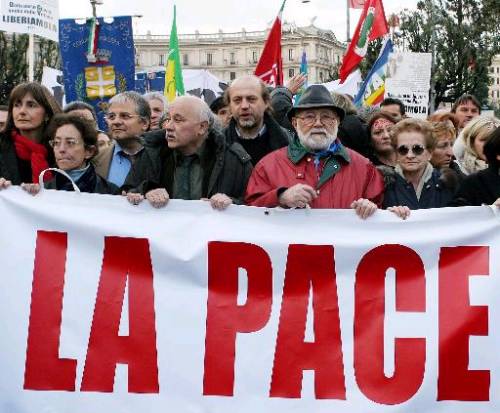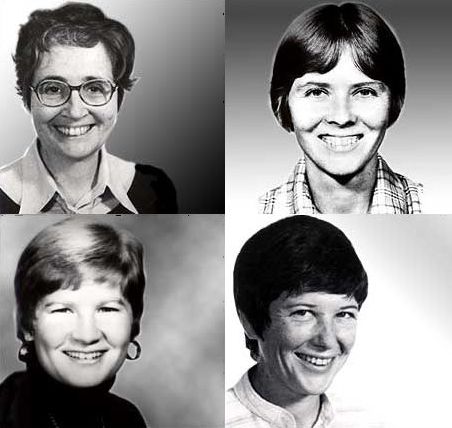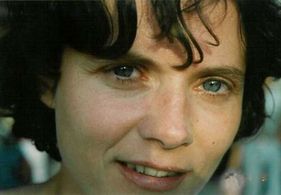If they kill me
"If, by the hand of the devil, those perverse plans succeed... forget about Venezuelan oil, Mr Bush," he said.
Chavez said he was convinced that Washington was "sketching out the assassination plans" before his Bolivarian Revolution advances in Venezuela and Latin America.
Chavez revealed a week ago that Cuban President Fidel Castro had warned him of a US assassination plot.
"Now, I am going to say it. Neither Fidel Castro nor I talk nonsense."
US Secretary of State Condoleezza Rice recently called Chavez "a negative force" in Latin America, and the State Department backed Colombia in a recent dispute between the Caribbean neighbours over the arrest of a Colombian rebel in Caracas by Colombian officials without Venezuela's knowledge or consent.
"If something happens to me, I blame the president of the United States," Chavez said.
Aljazeera 21.Feb.05
-...it was Chavez who -- a month later-- heightened the situation into a crisis . Perhaps it was an attempt to please his political base and garner some kind of solidarity from an international community more and more sensitive about issues of sovereignty. But his belated reaction did more to highlight his unpredictability than to convince anyone he suddenly had become an advocate for international law.
In fact, Chavez has rejected any assistance from the international community to resolve the crisis, including offers of mediation from Peru, Brazil and Mexico. Instead, Chavez, who sees the dispute in personal terms, would prefer a handholding session only after Uribe has asked him for forgiveness.
Marcela Sanchez[Sanchez is the sock puppet of Richard Lugar, who is in turn one of the phalanx of petroleum/Jesus/Armegeddon/zombies whatever is behind all this sends out to do its bidding. Sanchez will be more and more prominently placed in the media if and when the plan to take Chavez down is implemented.]
-Former President Jimmy Carter, who gave his blessing to Venezuelan leftist leader Hugo Chavez's controversial victory in a recall referendum last year, has now come up with a proposal that -- if accepted -- could send Chavez into instant retirement at a Cuban beach resort.
In an address Tuesday to the 34-member Organization of American States (OAS), Carter called for injecting new life into an inter-American treaty aimed at preventing democratically elected presidents from seizing all powers, and becoming de facto dictators. Which is exactly what Chavez seems to be doing.
"Let us strengthen the charter and not be afraid to use it," Carter said, bolstering the idea we suggested in this column a few weeks ago.
The OAS Democratic Charter was signed in 2001 in the aftermath of former Peruvian President Alberto Fujimori's takeover of Peru's Congress, but it has rarely been used.
The problem is that it calls for collective diplomatic sanctions against Fujimori-styled one-shot attacks on the rule of law, but it does little to address Chavez-styled cases of piecemeal destruction of the democratic system.
Andres Oppenheimer-
both of the above pieces courtesy of the honestly and somewhat prophetically named
Petroleum World-Duran subrayo que la denuncia presidencial es "muy grave" y constituye "una escalada de Chavez en su confrontacion con Estados Unidos que es su enemigo estrategico luego de superar la crisis politica interna."
"O en efecto Bush esta planificando un magnicidio lo que seria de una gravedad inconmensurable que todos los venezolanos deberiamos condenar o Chavez miente", sentencio.
El Universal
-
Rodolfo Frometa, a Cuban, and former Army Captain Luis Eduardo Garcia (a Venezuelan) are named in the article as the leaders of the paramilitary coalition formed by the "F-4 Commandos" and "The Venezuelan Patriotic Junta." Garcia, a former Captain, was one of the leaders of the defeated coup against democratically-elected president Hugo Chavez Frias in Venezuela in April 2002.
The training camps located in the Florida Everglades seem to have escaped the reach of the US Department of Homeland Security ... which was created by President Bush as a way of protecting the United States against terrorist attacks. This oversight seems to come from the fact that this coalition was not set up to attack the United States; instead, it follows the tradition of the Contras and their terror campaign in Nicaragua, and other groups such as Alpha 66 and the F-4 itself and their terror campaigns against Cuba. This time the coalition between F-4 and the Venezuelan Junta has been set up to train paramilitary forces to terrorize Venezuela.
Shortly after the Wall Street Journal article came out, the Venezuelan government made information available to the US Embassy in Venezuela, specifically detailing the activities carried out by these two groups.
The Venezuelan government did not receive a response from the US embassy at that time. It was not until plans to assassinate President Chavez surfaced, during his planned visit to Harlem, New York last September, that the Venezuelan government went public denouncing the plot and the existence of terrorist groups, training freely in Florida, conspiring to overthrow the government. In addition, in a televised appearance before the international media, Chavez revealed that his government is in possession of a video, secretly recorded by his security forces, of a CIA officer giving a class to Venezuelans on surveillance.
*Even though President Chavez did not cite the Wall Street Journal article specifically, the international media picked up the report and have challenged the US government to come forward with an explanation for its double standard on terrorism.
The United States was slow in responding. September 30, a few days after Chavez' statements, US Ambassador to Venezuela, Charles S. Shapiro stated "it is not necessarily a crime ... but we are in the full process of collecting information and we must follow all legal procedures ... if there is anyone to blame, our government knows what to do."
Showing a certain disdain and even annoyance he also stated, "some Venezuelans have been receiving military training in the United States."
He further admitted that the information was also published in a Miami newspaper a year ago, but he was unable to explain why no action was taken by the US Homeland Security Department. "We're not going to take action against anybody ... we haven't been able to make any headway."
The Venezuelan President has been relentless in pursuing the issue. "Who gave the United States government the right to bomb cities, invade countries, overthrow governments?" Chavez asked. "No one gave this right to the United States government. And here, we will keep saying that."
VHeadlines 16.Oct.05
-
On January 11, Ambassador Brownfield made headlines in Venezuela during a visit to the site of destruction from torrential flooding that occurred back in 1999. He declared that the U.S. Government will always "support the people of Venezuela" and assured assistance in case of any future natural disasters. He announced the donation of $33,000 in USAID funding for a local day care center, a mere fraction of the more than $15 million given by USAID to the political opposition in Venezuela over the past few years to overthrow President Chavez. But Brownfield's appeasing disposition was clearly directed at Venezuelans and not their government. Just a day later, the "good cop, bad cop" game the U.S. Government has been playing with Venezuela became evident. Former U.S. Ambassador to Venezuela, Charles Shapiro, accredited shortly before the coup in April 2002 and remaining, through rocky relations, until August 2004, published an Opinion article in Miami's Spanish newspaper, El Nuevo Herald, justifying U.S. intervention in Venezuela.
Shapiro, now the Adjunct Vice Secretary for Western Hemisphere Affairs of the Department of State, affirmed the U.S. Government's commitment to continue financing Venezuela's opposition movement to President Chavez, referring to coup leaders and illegal strike instigators as "Venezuelans seeking to protect their democratic rights". The U.S. Government has funneled more than $20 million to opposition organizations and parties since 2001, through its two financing entities, the National Endowment for Democracy and United States Agency for International Development (USAID).
Continuing with the media campaign, on January 13, Senator Richard Lugar, head of the international relations committee of the U.S. Senate, made public a letter sent in November 2004 to the U.S. Government Accountability Office expressing profound worry over an eventual disruption in oil supply from Venezuela. Lugar affirmed that the Department of State no longer considers Venezuela a reliable supplier of oil due to "political instability" that threatens oil production. No mention was made of the fact that the U.S. Government has been the prime instigator of such "political instability".
Eva Golinger/Venezuelanalysis 26.Jan.05
-
Our Chavez problemVenezuelan strongman's erratic pronouncements and enmity toward Bush unsettle Houston interests.
In the summer of 2003, Luis Marin was picked to be CEO of Citgo, the U.S. refining and marketing arm of Venezuela's state oil company. Marin decided to move Citgo's headquarters from Tulsa, Okla., to Houston.
Now Marin is out and Citgo's parent company, Petróleos de Venezuela, has put Citgo on the block. What gives?
The answer lies with Venezuela's authoritarian, faux leftist president, Hugo Chavez. Chavez's political support lies with Venezuela's poor, of whom there is no shortage. He cements his support by directing much of the country's oil revenues to social programs, although lately he has sought to spend heavily on warplanes and other weaponry. Chavez's other tactics include muzzling the press, befriending and imitating Cuban dictator Fidel Castro, and accusing the Bush administration of having imperialist designs.
Even astute foreign policy analysts have difficulty distinguishing Chavez's propaganda and rants from real policy pronouncements. Chavez recently accused Citgo of paying no Venezuelan taxes, hiring no Venezuelans and sending home no profits.
Houston Chronicle18.Feb.05
-
link
11abril 





